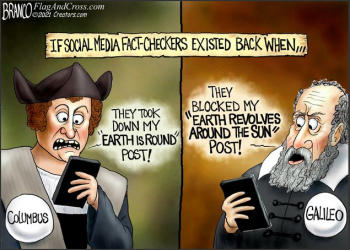the obsrver
Master Class
Whoa there, that is my kind of talking.^ That requires objective qualification, though, correct?
Well, getting a Ph.D. or M.D. or "Professor of" or other such additions after one's name - that *_also_* requires quantifiable qualification.
Unless someone is given an "honorary degree," none of those distinctions are conferred willy-nilly, and they do attest to a person's level of expertise in their select field of study, won through countless hours of study, testing, defense of their views versus a panel of other experts in their very field, and oftentimes a lifetime of required continual practice.
To add, it's my personal belief that we've come to a weird inflection point in our society/culture. We are often fond of saying that "back in the day," so-and-so or such-and-such. Back in the day, we respected our doctors. We respected our nuclear physicists. We respected our astronauts and the countless support staff which made their missions possible.
Today, it's almost fashionable to be anti-intellectual.
I don't think that this is right.
To-wit: even in our hobby/sport here, are we not driven by science and measurements? By quantifiable results? By our own SMEs who have based their teachings and advice on their own hard-won life-experiences and..... studies (does West Point or Annapolis not count? do they not reference Sun Tzu or Musashi or study history?).
I don't agree that science is the enemy in the same way that I don't believe that religion or patriotism or tribalism is the enemy.
I think that science merely shows us what is known *_in the moment._* - and itself is only ever capable of proving itself wrong. I think it is much more important that we critically *_think_* about the "science" that we are presented with, to examine the strengths and weaknesses of the arguments which it presents, so that we can make informed decisions.
Blame not the scientist nor science.
Blame those who are spinning things for their own gain: be it science, or history, or even your feelings.
For starters I have come to believe that science, philosophy and religion have things in common. More impotantly they compliment each other. I do not feel as though it is one or the other, but both.
As for Sun Tzu and to a larger part the ancient Asian ways, I am onboard with that as well. Again it is not this or modern medicine or principals, but both.
The biggest problem with modern science and medicine in my opinion is, that it wants right and wrong. Black and white. If Youngs experiment does not show that at some point that thought process breaks down and keeps you from the truth or ultimate goal, then I do not know what does.





